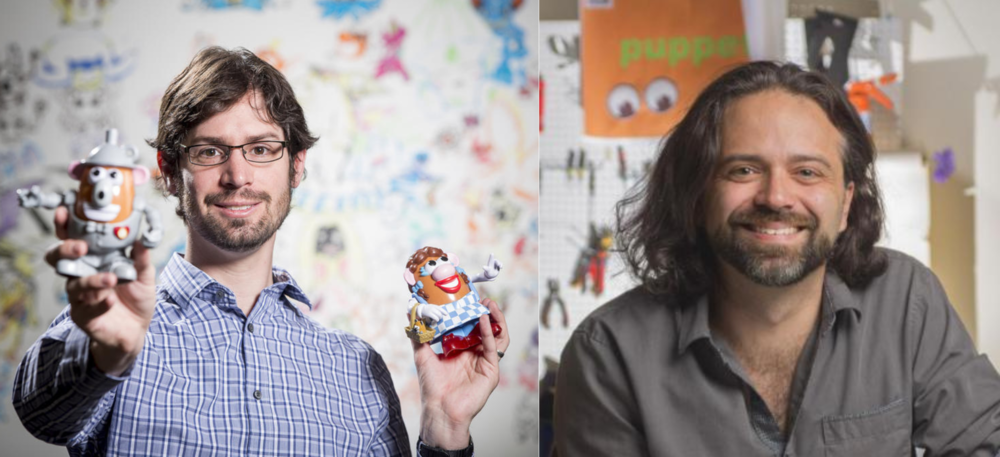
Caption
Georgia Tech's Mark Riedl and Brian Magerko join Political Rewind to explain artificial intelligence.
Credit: Georgia Institute of Technology
|Updated: May 9, 2023 10:50 AM

Georgia Tech's Mark Riedl and Brian Magerko join Political Rewind to explain artificial intelligence.
Brian Magerko, Professor of Digital Media, Director of Graduate Studies in Digital Media, Head, Expressive Machinery Lab
Mark Riedl, Professor, School of Interactive Computing, Associate Director, Georgia Tech Machine Learning Center
1. What is an AI?
/
LISTEN: Magerko and Riedl on neural networks.
2. Where is AI going?
/
LISTEN: Mark Riedl on AI development.
3. How much do AI understand?
/
LISTEN: Brian Magerko on technology literacy.
4. How do chatbots make creative works?
/
LISTEN: Brian Magerko on creative works.
5. What's the future for AI?
Thursday on Political Rewind: In conversation with the Rev. Dr. Joanna Adams.